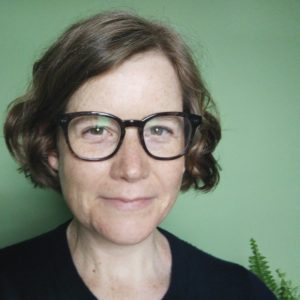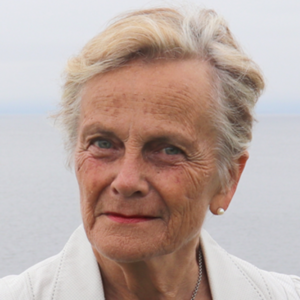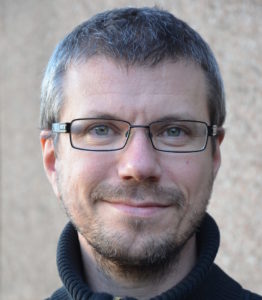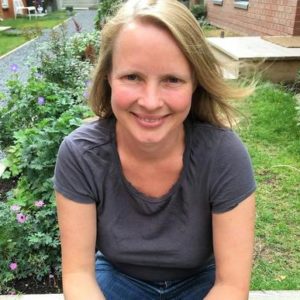Overview:
—
Keynotes:
Michelle Bastian, Senior Lecturer in Environmental Humanities at University of Edinburgh
 Michelle Bastian is a Senior Lecturer in Environmental Humanities at the Edinburgh College of Art, University of Edinburgh. Her work crosses critical time studies and environmental humanities, with a focus on the role of time in human and more-than-human communities. She is Editor-in-Chief for Time & Society (SAGE) and a co-editor of a number of collections including, The Social Life of Time (Time & Society), Field Philosophy and Other Experiments (Parallax) and Participatory Research in More-than-Human Worlds (Routledge). Michelle has recent publications in Environmental Humanities, GeoHumanities, and New Formations.
Michelle Bastian is a Senior Lecturer in Environmental Humanities at the Edinburgh College of Art, University of Edinburgh. Her work crosses critical time studies and environmental humanities, with a focus on the role of time in human and more-than-human communities. She is Editor-in-Chief for Time & Society (SAGE) and a co-editor of a number of collections including, The Social Life of Time (Time & Society), Field Philosophy and Other Experiments (Parallax) and Participatory Research in More-than-Human Worlds (Routledge). Michelle has recent publications in Environmental Humanities, GeoHumanities, and New Formations.
Phenomenal time: a field philosophy for more liveable worlds
Around the globe, stories of environmental mismatches in timing are demonstrating the complicated effects of climate change. Arctic caribou are arriving at their feeding grounds too late for peaks in vegetation growth with devastating effects on new mothers and calves. Atlantic puffins and European woodland birds are also hatching chicks outside of the best times for catching prey. Importantly, this ‘time out of joint’ applies not only to ecological contexts, but social ones as well. Political cycles are thought to encourage short-term thinking, when the climate crisis demands sustained action, and our seemingly ephemeral everyday practices are causing changes that will last into deep geological time.
Conventionally, the time of our lives has been studied separately from the time of nature, but the climate crisis has shown that both need to be thought together. In particular, we need ways of understanding and responding to temporal mismatches in order to address the fundamental question of how to better coordinate ourselves in a time of climate breakdown. While the potentials of geological time has drawn much attention (Bjornerud), this paper will outline some reflections at the start of my new project which will explore a subfield of ecology — phenology — which studies cyclical and seasonal phenomena in plants and animals. Studying the ways that living beings produce complex temporal arrangements with each other in order to make life possible — and the mismatches that occur when things shift — phenology shows us the possibilities and limits of recalibrating time when everything around us is changing. Initiating a new conversation between the humanities, social sciences and ecology, this project will draw on innovative methods in ‘field philosophy’ to support collaborative enquiries with professional and amateur phenologists. The aim is to explore how new understandings of time can play a role in fostering an awareness of interdependence in the hope of more liveable worlds.
—
Kjersti Fløttum, Professor of French at University of Bergen
 Kjersti Fløttum is professor of French linguistics at the Department of foreign languages, University of Bergen. Her research interests cover text- and genre theory, narrative structures, linguistic polyphony and discourse analysis. The major part of her empirical research is oriented towards academic, political and climate change discourse. She has led several international cross-disciplinary projects; since 2012 she is head of the cross-disciplinary LINGCLIM research group (Linguistic Representations of Climate Change Discourse and Their Individual and Collective Interpretations) and of the CLIMLIFE project 2020-2023. Fløttum has published substantially in international journals and is co-author/editor of several books.
Kjersti Fløttum is professor of French linguistics at the Department of foreign languages, University of Bergen. Her research interests cover text- and genre theory, narrative structures, linguistic polyphony and discourse analysis. The major part of her empirical research is oriented towards academic, political and climate change discourse. She has led several international cross-disciplinary projects; since 2012 she is head of the cross-disciplinary LINGCLIM research group (Linguistic Representations of Climate Change Discourse and Their Individual and Collective Interpretations) and of the CLIMLIFE project 2020-2023. Fløttum has published substantially in international journals and is co-author/editor of several books.
Genre differences, polyphony and role attribution in climate change narratives
In this talk I will first give an introduction to the cross-disciplinary research group LINGCLIM, constituting the background of the research presented. We have for a decade been undertaking research on linguistic representations of climate change discourses and their interpretations (Fløttum 2017). Then I will give a short overview of our main theoretical framework, including 1) narrative theory, inspired by the textlinguistic approach of Jean-Michel Adam (2008) and the political science approach developed by Michael D. Jones and colleagues in the Narrative Policy Framework (Jones et al. 2014), and 2) linguistic polyphony (multivoicedness), as generated in the Scandinavian ScaPoLine theory (Nølke et al. 2004).
The core part of the talk will centre on various constructions of “climate stories” in different genres, with a special focus on personal stories in answers to open-ended survey questions. Topics as the following will be discussed: 1) how are different voices manifested and what are the relations between them (concession, hesitation, rejection), 2) to what extent do the voices convey different narratives, 3) what kind of narrative characters or roles are attributed to the various voices (heroes, villains, victims)? Different narrative roles may display different conceptions of responsibility (for causes of and solutions to climate change) according to the actual context and time perspective.
Adam, J.M. 2008. La linguistique textuelle. Introduction à l’analyse textuelles des discours. Paris: A. Colin.
Fløttum, K. (Ed.) 2017. The role of language in the climate change debate. New York/London: Routledge.
Jones, M. D., Shanahan, E. A. & McBeth, M. K. (eds.). 2014. The Science of Stories. New York: Palgrave MacMillan.
Nølke, H., Fløttum, K. & Norén, C. (2004). ScaPoLine. La théorie scandinave de la polyphonie linguistique. Paris: Kimé.
—
Project conversation:
A conversation about the project “The Future is Now”
“The Future is Now” is an interdisciplinary research project funded by The Research Council of Norway. The project examines multiple temporalities in climate change discourse. The project has been running from 2017 and finishes in august 2021, with “Climate change temporalities” as the concluding conference for the project.
In this plenary session conversation Professor Anders Ekström will discuss some of the main results from project with the PI of the project, Kyrre Kverndokk and postdoc Marit Ruge Bjærke.
The starting point for “The Future is Now” is that climate change challenges established understandings of time. It does so by entangling geology and history on the grand scale, and also by interfering with ordinary reasoning based in immediate experience and observable changes. The project explores all these aspects of climate change temporalities, and how they are entangled or separated in different climate discourses. It examines a number of cases from vernacular culture, media culture and climate research and asks: How is the present connected to a climate-changed future? What relevance is ascribed to the past when discussing the present climate crisis and a climate-changed future? How do vernacular, popular and scientific notions of climate change temporality intersect or differ from each other?
Host:
Anders Ekström, Professor of History of Science and Ideas at Uppsala University

Foto. Mikael Wallerstedt
Anders Ekström is Professor at the Department of History of Science and Ideas, Uppsala University, Sweden. He has published broadly on modern cultural and media history and theory, with a particular focus on the long 19th century. Among his most recent publications is an edited volume on Times of History, Times of Nature: Temporalization and the Limits of Modern Knowledge (with S. Bergwik; forthcoming with Berghahn Books). His work on time and disaster appeared in journals such as Theory, Culture & Society and Media, Culture & Society. His current research is mainly concerned with two areas: the history of publicness, and cultural processes of temporalization in relation to climate change.
Project PIs:
Kyrre Kverndokk, Professor of Cultural Studies, University of Bergen

Kyrre Kverndokk is Professor of Cultural Studies at the Department of Archaeology, History, Cultural Studies and Religion, at the University of Bergen, Norway. His past research explores the practice and politics of Second World War memory, the history of folklore studies, the cultural history of natural disasters, and climate change temporalities. He is the author of the book Naturkatastrofer: En kulturhistorie (Natural Disasters: A Cultural History) (2015) and co-editor of the volume Climate Change Temporalities: Explorations in Vernacular, Popular, and Scientific Discourse (2021). Kverndokk is the PI of the research project The Future is Now: Temporality and exemplarity in climate change discourses.
Marit Ruge Bjærke, postdoctoral research fellow in Cultural Studies, University of Bergen

Marit Ruge Bjærke is a postdoctoral research fellow at the Department of Archaeology, History, Cultural Studies and Religion, University of Bergen, Norway. Since 2017, she has been part of the research project The Future is Now: Temporality and Exemplarity in Climate Change Discourses. Her research interests lie within the environmental humanities, with a focus on biodiversity, biodiversity loss, and so-called invasive species, as well as on how different environmental problems are understood and communicated. Bjærke holds a PhD in Marine Biology and an MA in History of Ideas, and has recently co-edited the book Climate Change Temporalities: Explorations in Vernacular, Popular, and Scientific Discourse (2021).